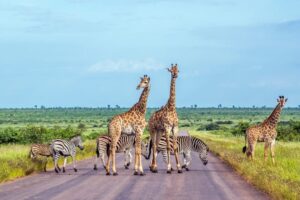French Guiana
French Guiana is situated on the north east of South America, and is an overseas region of France. The French first settled there in 1604, and now the country remains the only part of mainland South America which is still governed by an overseas country. French Guiana has a landscape of mainly tropical rainforest, and is bordered by two rivers. Oyapock River to the west separates the country from Brazil, and Maroni River to the east separates it from Suriname.
Make an online bookingTravel Health Information
Highly recommended
vaccinations for travelling here
Advisory
vaccinations for travelling here
The Zika virus is present in French Guiana, and this virus has the ability to cause birth defects. Therefore women who are pregnant, or who are planning to become pregnant, should not travel here. Travellers should take precautions to avoid mosquito bites, due to a number of non-vaccinated diseases being contracted in this way. It’s advised to cover up with clothing, frequent use of repellent cream or spray, and to sleep with a mosquito next over you if there is a risk of insects in your sleeping area.
When travelling to French Guiana, you should take sensible precautions regarding your own personal safety like you would in any other country. Although the crime levels here are low, this doesn’t eliminate all risk. We advise you to avoid isolated areas that you’re not familiar with after dark, and not to openly carry valuable or large amounts of cash wherever possible.
To avoid food poisoning and other travel illnesses, you should drink only bottled water and be vigilant about food hygiene. Medical care is only available in the urban areas of French Guiana, with nothing outside of these areas.
The rainy season in French Guiana is between December and July each year, and during this time there is a risk of tropical storms and hurricanes, which can cause flooding. If travelling during this period, make sure you check the weather conditions before heading out, know how to summon help if it is needed and wear suitable clothing.
Infections and Outbreaks
Book in for a pre-travel consultation with us and you’ll be given the most up to date clinical and safety advice from our team of specialists. Our advice to you often includes aspects such as:
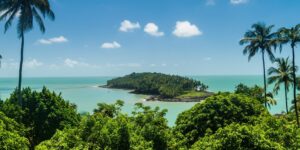
Your nearest CityDoc clinic
Find a clinic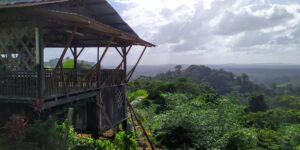
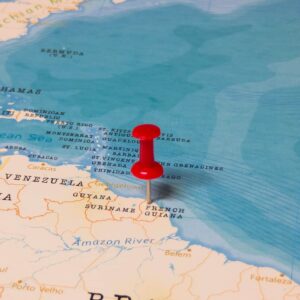
Destination Information for French Guiana
French Guiana is situated on the north east of South America, and is an overseas region of France. The French first settled there in 1604, and now the country remains the only part of mainland South America which is still governed by an overseas country. French Guiana has a landscape of mainly tropical rainforest, and is bordered by two rivers. Oyapock River to the west separates the country from Brazil, and Maroni River to the east separates it from Suriname.
The capital city, Cayenne, is located in the north of the country by the coast, and is home to the historic 17th century Fort Cépérou which overlooks the Cayenne River. The city is full of colourful houses and street markets, as well as having plenty of restaurants serving a variety of cuisines for both visitors and locals to enjoy.
Along the coast from Cayenne is the town Kourou, where the launch site for the European Space Programme is located. Another famous site in French Guiana is the notorious penal camp for political prisoners, Devil’s Island. The horrors which occurred here were recreated in Henri Charriere’s book, Papillon. Today, the site is open for visitors who can take a tour of the ruins on the Iles du Salut.
The landscape of French Guiana includes jungle and rainforest inland, meaning most of the country’s towns are situated along the coast. Wildlife is plentiful here, with opportunities to lay sea turtles on the beach at Remire-Montjoly, as well as to see parrots and monkeys in their natural habitat.
Although located north east of South America, French Guiana is a French region, and so the currency used here is the Euro. Prices are similar to those you find in Europe, and so this doesn’t tend to be a budget destination! Accommodation options include hotels in the more urban areas of the country, or if you’d like something more authentic, you can rent a basic hut by the river and explore the rainforest straight from your base.
Travel news
Helpful travel news, tips and advice for travelling around the world

Water Hygiene While Travelling: What You Need to Know
Get the facts straight: Common myths about water hygiene while travelling debunked here.
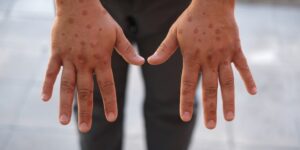
Mpox- How dangerous is it?
With the recent WHO announcement regarding the outbreak of Mpox in Africa there has been a concern of its transmission to other countries.
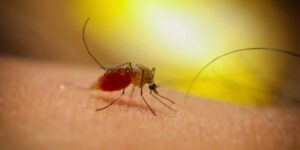
Pregnancy and Malaria
A malaria infection can cause complications during the pregnancy to mother and the baby.
For the latest government travel advice
For anyone planning to travel abroad we recommend visiting the following government website for all the latest travel guidance and advice.
Travel health enquiries
For all travel health enquiries, simply contact us below.
